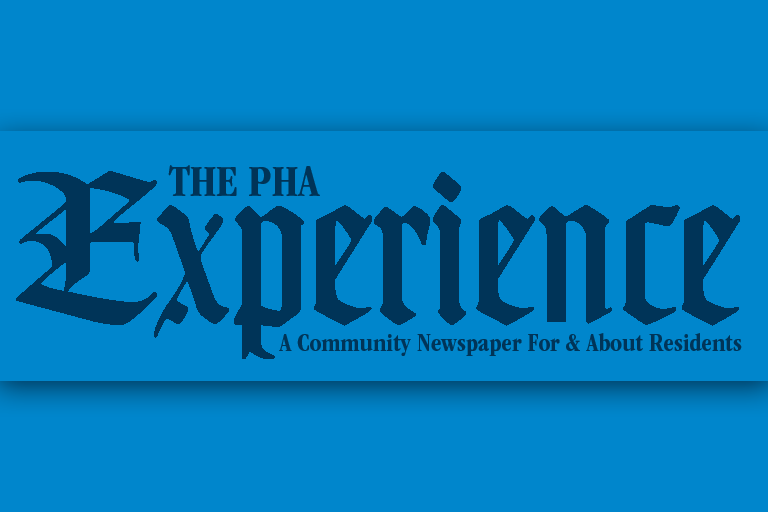Philadelphia Housing Authority Host Ribbon Cutting for Innovative Housing Program

This is the first income-based housing managed and maintained by a local housing authority that exclusively serves community college students
April 13, 2022
Community College of Philadelphia (the College) and the Philadelphia Housing Authority (PHA) today celebrated the first income-based housing managed and maintained by a local housing authority that exclusively serves community college students. This is the grand opening of the second rowhome which provides low-cost apartments for housing insecure students at the College, with a focus on students who have experience in the foster care system.
“As the largest public institution of higher education in the City of Philadelphia, we are proud to offer our most vulnerable students safe and affordable housing options,” said College President Dr. Donald “Guy” Generals. “What I love most about this partnership is that students are paired with a support coach to help them better navigate life not only at the College, but to ensure that they receive the necessary social-emotional support and safety networks of others their age. We are doing everything in our power to ease the burdens our students face and make it easier for them to continue their studies and realize their dreams.”
“The Shared Housing Partnership is an approach that dismantles some of the barriers to college completion that are unique to homeless and housing-insecure college students, and undermine their ability to succeed,” said Kelvin A. Jeremiah, President and CEO of PHA. “Financial setbacks and homelessness force many low-income students to drop out of college. This partnership provides them a foothold and a chance to transition, through education, to self-sufficiency and permanent housing. When college students succeed, everyone in our community benefits.”
The newly renovated rowhome, located at 535 North 11th Street, contains three, three-bedroom apartments – each on its own floor. Students in each apartment share a common living area, kitchen, and bathroom, and have separate bedrooms. College students
will pay rent based on 30 percent of their incomes. In no case will a student pay more than $125 a month for rent but, with their limited incomes, it will typically be much less. The median rent in the surrounding neighborhood is more than $2,000 a month.
The 11th Street location, which will be fully furnished by the College, can house up to nine students. The partnership’s first rowhome, which open last fall, is fully leased with seven students. Utilities are paid for by PHA.
In addition to having access to safe, quality and affordable housing, eligible students enter into a stability plan and are paired with a College program coordinator to aid their transition out of shared housing and into a stable, permanent residence. The College will monitor and assess the initiative’s success based on the students’ retention and graduation rates, as well as their success transitioning to permanent housing.
Students also receive special wraparound support services to ensure that they succeed at the College including: support for students with experience in the foster care system; free assistance with health insurance, food resources, cash and other subsidies; academic advising and academic-related counseling services; and assistance with scholarships and career readiness supports.
Students have also received one-time stipends from the Charles G. Berwind Foundation for household items such as pots and pans, as well as technology needs such as laptops.
About Community College of Philadelphia
Community College of Philadelphia is an open-admission, associate-degree-granting institution which provides access to higher education for all who may benefit. The College serves Philadelphia by preparing its students to be informed and concerned citizens, active participants in the cultural life of the city and enabled to meet the changing needs of business, industry and the professions. For more information, visit ccp.edu and follow us on social media @CCPedu.

